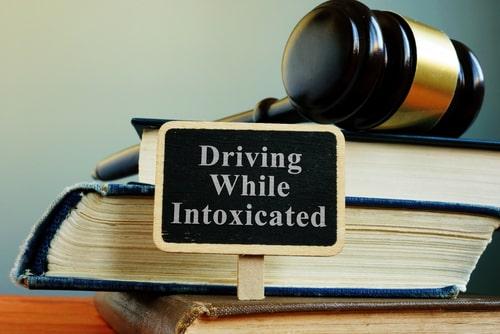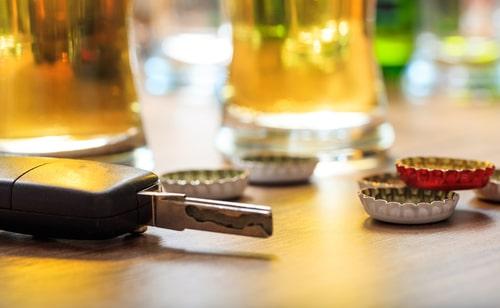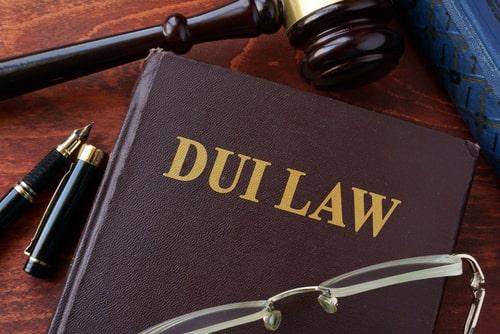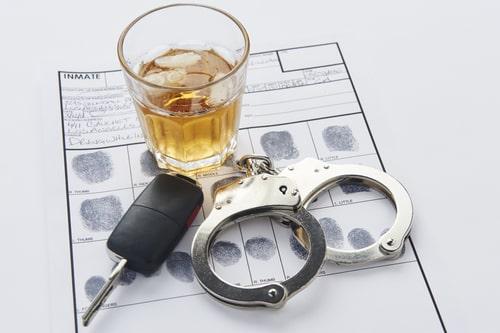Recent Blog Posts
When Is Aggravated Speeding a Criminal Offense?
 Getting pulled over in Illinois for driving over the speed limit, can lead to arrest because it is considered a criminal offense. And while this does not happen often, if someone is arrested for excessive speeding, there are likely aggravating circumstances such as weaving through traffic. In 2020, 11,258 people were killed because of speed-related traffic crashes. There are circumstances in which speeding is more than a traffic violation and a driver could face jail time, and risk losing their driver’s license. In Illinois, aggravated speeding is a crime that results in misdemeanor criminal charges. If you're driving in Illinois, it's important to be aware of the consequences of receiving an aggravated speeding conviction.
Getting pulled over in Illinois for driving over the speed limit, can lead to arrest because it is considered a criminal offense. And while this does not happen often, if someone is arrested for excessive speeding, there are likely aggravating circumstances such as weaving through traffic. In 2020, 11,258 people were killed because of speed-related traffic crashes. There are circumstances in which speeding is more than a traffic violation and a driver could face jail time, and risk losing their driver’s license. In Illinois, aggravated speeding is a crime that results in misdemeanor criminal charges. If you're driving in Illinois, it's important to be aware of the consequences of receiving an aggravated speeding conviction.
What Is Considered Excessive Speeding?
If you're driving in Illinois, it's important to be aware of the consequences of aggravated speeding. Depending on how far over the speed limit you are traveling, it can result in either a Class B or Class A misdemeanor.
How to Get a License Reinstatement after a DUI Arrest
 Most people are aware that if you are convicted of drinking and driving under the influence of drugs or alcohol you could lose your driving privileges. In the state of Illinois, two things can happen. Your driver’s license could be suspended or revoked. So what is the difference? Many criminal offenses, not just traffic violations, call for a suspension or revocation of a person’s license.
Most people are aware that if you are convicted of drinking and driving under the influence of drugs or alcohol you could lose your driving privileges. In the state of Illinois, two things can happen. Your driver’s license could be suspended or revoked. So what is the difference? Many criminal offenses, not just traffic violations, call for a suspension or revocation of a person’s license.
License Suspension
Having your driver’s license suspended is the more lenient punishment of the two. That is because driving privileges are suspended for a specific period. Here are some reasons why a driver’s license could be suspended:
- Failing a chemical test after a DUI arrest
- Refusing a chemical test after a DUI arrest
- Having any trace of alcohol in your system if you are under 21 years old
- Failing to appear in court for a traffic violation
Could I Face Criminal Charges for Violating the Move Over Law in Illinois?
 There is an ongoing effort in Illinois to better educate drivers about navigating emergency zones. Just last month, a semi-truck blew through a construction zone and plowed into the back of an Illinois State Trooper’s car. There are an increasing number of crashes involving Scott’s law violations commonly referred to as the “Move over Law,” which is designed to protect first responders and other emergency personnel stopped on the side of the road. Depending on the circumstances of this traffic violation it could be considered a criminal offense.
There is an ongoing effort in Illinois to better educate drivers about navigating emergency zones. Just last month, a semi-truck blew through a construction zone and plowed into the back of an Illinois State Trooper’s car. There are an increasing number of crashes involving Scott’s law violations commonly referred to as the “Move over Law,” which is designed to protect first responders and other emergency personnel stopped on the side of the road. Depending on the circumstances of this traffic violation it could be considered a criminal offense.
What Constitutes an Authorized Emergency Vehicle?
Under Scott’s Law, when other cars approach a stationary police or emergency vehicle on the side of the road that has its emergency lights on, other vehicles must proceed with caution. The law has evolved and requires that motorists move over when they are approaching any disabled vehicle with its hazard lights on. Vehicles that are commonly classified as authorized emergency vehicles include the following:
Are You Facing Stalking Charges in Illinois?
 Being followed home or receiving threatening messages on social media are both considered forms of stalking. Nearly 14 million people are stalked every year in the United States. That includes nearly one in three women and one in six men. In most cases, these individuals are being stalked by someone they know. In the state of Illinois, stalking can be considered a crime of domestic violence. If you are being charged with this crime you need aggressive legal representation right away.
Being followed home or receiving threatening messages on social media are both considered forms of stalking. Nearly 14 million people are stalked every year in the United States. That includes nearly one in three women and one in six men. In most cases, these individuals are being stalked by someone they know. In the state of Illinois, stalking can be considered a crime of domestic violence. If you are being charged with this crime you need aggressive legal representation right away.
Understanding How Stalking Is Defined in Illinois
Stalking in Illinois is a felony, even for first-time offenders. It is considered a crime of domestic violence when it is committed against a person who is a family or household member. The Illinois Domestic Violence Act of 1986 defines stalking as engaging in conduct directed at a person that would cause a reasonable person to fear for their safety or the safety of their family. Actions that would qualify as stalking include the following:
What is the Difference between Vehicle Theft and Vehicular Hijacking in Illinois?
 Motor vehicle thefts across 30 major cities spiked 59 percent from 2019 to 2022. When the pandemic began these crimes dwindled, then shot up again. Stealing a car or borrowing one without permission, could lead to vehicle theft charges and serious penalties. If you decide to steal that vehicle using force, you could be facing vehicular hijacking charges which are even more serious. These crimes could become a part of your permanent record accessible by employers and they could have a serious impact on your reputation. That is why it is vital that you seek the help of an experienced criminal defense attorney.
Motor vehicle thefts across 30 major cities spiked 59 percent from 2019 to 2022. When the pandemic began these crimes dwindled, then shot up again. Stealing a car or borrowing one without permission, could lead to vehicle theft charges and serious penalties. If you decide to steal that vehicle using force, you could be facing vehicular hijacking charges which are even more serious. These crimes could become a part of your permanent record accessible by employers and they could have a serious impact on your reputation. That is why it is vital that you seek the help of an experienced criminal defense attorney.
Stealing a Car
The theft of motor vehicles under Illinois law is a serious crime. The key is to prove that it was an intentional act. Actually stealing a car compared to borrowing the car from someone without knowing it was stolen are very different circumstances yet you could face felony charges under both scenarios.
What to Expect After a Snowmobile DUI
 Snowmobiling through snow-covered hills with the cool breeze on your face is a thrill for many who love the outdoors. It is an opportunity to experience Mother Nature from a different perspective along with some 16.4 million people who take part in the sport. However, this popular activity comes with risks of accidents and injuries. In 2019, there were 7,100 snowmobile-related injuries and 300 snowmobile-related deaths in the United States alone, making snowmobiling one of the most dangerous winter sports. If you are facing aggravated felony DUI charges following someone’s death after a snowmobile crash you need an experienced attorney.
Snowmobiling through snow-covered hills with the cool breeze on your face is a thrill for many who love the outdoors. It is an opportunity to experience Mother Nature from a different perspective along with some 16.4 million people who take part in the sport. However, this popular activity comes with risks of accidents and injuries. In 2019, there were 7,100 snowmobile-related injuries and 300 snowmobile-related deaths in the United States alone, making snowmobiling one of the most dangerous winter sports. If you are facing aggravated felony DUI charges following someone’s death after a snowmobile crash you need an experienced attorney.
DUI Involving Snowmobiles
It is crucial for snowmobile riders to be aware of the risks and to minimize them by following proper safety guidelines, such as taking a safety course and always wearing a helmet. It is also vital to respect the rights of others while on the trails, not only to yield to other users but to avoid reckless behavior. The leading cause of snowmobile accidents is operator error for the following reasons:
Can I Get off the Hook by Refusing a Breathalyzer Test?
 If you see flashing lights as you are driving down the road, you could be concerned, because you may not be sure about your blood alcohol concentration or BAC level. Perhaps what comes to mind is simply refusing a field sobriety test when you pull over. After all, if you do not agree to a test, there is no evidence of drunk driving, right? Well, it is actually a bit more complex than that.
If you see flashing lights as you are driving down the road, you could be concerned, because you may not be sure about your blood alcohol concentration or BAC level. Perhaps what comes to mind is simply refusing a field sobriety test when you pull over. After all, if you do not agree to a test, there is no evidence of drunk driving, right? Well, it is actually a bit more complex than that.
Implied Consent in Illinois
Technically, you are free to refuse a Breathalyzer in the state of Illinois. But there are consequences that will follow. That is because there is an implied consent law in Illinois. When you first obtained your driver’s license, you consented to have a field sobriety test if you were ever suspected of driving under the influence. The test is designed to measure your BAC level, typically via Breathalyzer, blood draw, or urine draw. By revoking that consent, your driver’s license may be impacted.
Ways to Put a DUI Arrest Behind You
 If you were arrested and possibly convicted of drunk driving, you may now be having trouble getting a hired at a new job or signing a new rental lease. When this information is not kept private, there are numerous parties who may be able to access it and potentially derail your future plans. You may be wondering if there is a way to protect your future and conceal your criminal record. The state of Illinois allows for two manners in which someone may conceal an arrest or conviction: expungement and sealing a criminal record.
If you were arrested and possibly convicted of drunk driving, you may now be having trouble getting a hired at a new job or signing a new rental lease. When this information is not kept private, there are numerous parties who may be able to access it and potentially derail your future plans. You may be wondering if there is a way to protect your future and conceal your criminal record. The state of Illinois allows for two manners in which someone may conceal an arrest or conviction: expungement and sealing a criminal record.
Two Key Methods to Conceal Your Record
We understand that being arrested for driving under the influence can tarnish your reputation. But rest assured, there are two ways to clear your criminal record and keep any brushes with the law private. In the state of Illinois, you are allowed to expunge or seal certain criminal records. However, the only time you can conceal offenses related to DUI is if it does not result in a conviction.
What Happens If I Get a DUI and I Have a Commercial Driver’s License?
 Truck drivers depend on their commercial driver’s licenses (CDLs) to work and support themselves and their families. So, getting arrested for driving under the influence of alcohol while driving the company truck or your personal vehicle can jeopardize your job. As a commercial truck driver, you are held to a higher standard compared to most drivers on the road. With so much on the line, it is important to avoid a conviction. You need a qualified CDL driving under the influence attorney with the experience and commitment to help save your employment and avoid a CDL suspension or revocation.
Truck drivers depend on their commercial driver’s licenses (CDLs) to work and support themselves and their families. So, getting arrested for driving under the influence of alcohol while driving the company truck or your personal vehicle can jeopardize your job. As a commercial truck driver, you are held to a higher standard compared to most drivers on the road. With so much on the line, it is important to avoid a conviction. You need a qualified CDL driving under the influence attorney with the experience and commitment to help save your employment and avoid a CDL suspension or revocation.
Blood Alcohol Concentration for Commercial Drivers
For folks who drive a personal vehicle, the blood alcohol concentration (BAC) threshold for DUI is .08 but if you operate a commercial vehicle, the BAC level is only .04 and you could be arrested and charged with a DUI. If you are pulled over while driving your personal car and have a commercial driver’s license or CDL, your license may be suspended or revoked. If this is your first offense, the penalty is a one-year disqualification of your CDL. Second-time offenders could be disqualified for life.
What Are the Penalties for Aggravated Speeding in Illinois?
 If you were pulled over for traveling at a high rate of speed, it is possible that you could be facing aggravated speeding charges. The fact of the matter is that speeding is dangerous, and it endangers everyone sharing the road. More than 11,000 people are killed in speed-related traffic accidents; therefore, penalties for aggravated speeding can be quite serious.
If you were pulled over for traveling at a high rate of speed, it is possible that you could be facing aggravated speeding charges. The fact of the matter is that speeding is dangerous, and it endangers everyone sharing the road. More than 11,000 people are killed in speed-related traffic accidents; therefore, penalties for aggravated speeding can be quite serious.
Aggravated Speeding and Penalties
Aggravated speeding in Illinois can be either a Class B or Class A misdemeanor. It boils down to how fast you were alleged to be driving when you were pulled over:
- Driving 26 mph to 35 mph above the speed limit could lead to a Class B misdemeanor charge, fines of up to $1,500, and up to six months in county jail.
- Driving 35 mph or higher above the speed limit could lead to a Class A misdemeanor charge, fines of up to $2,500, and up to one year in jail.







